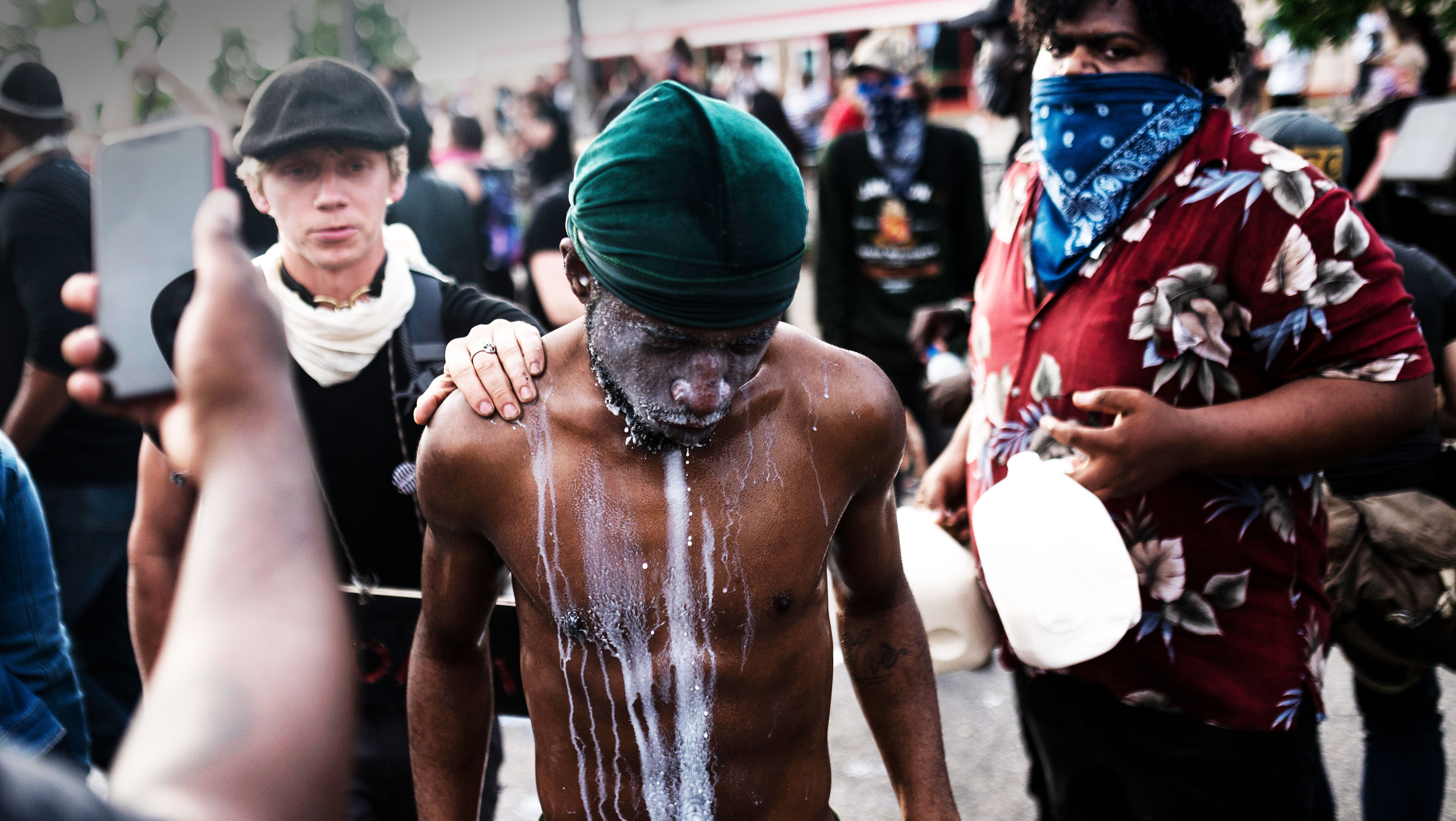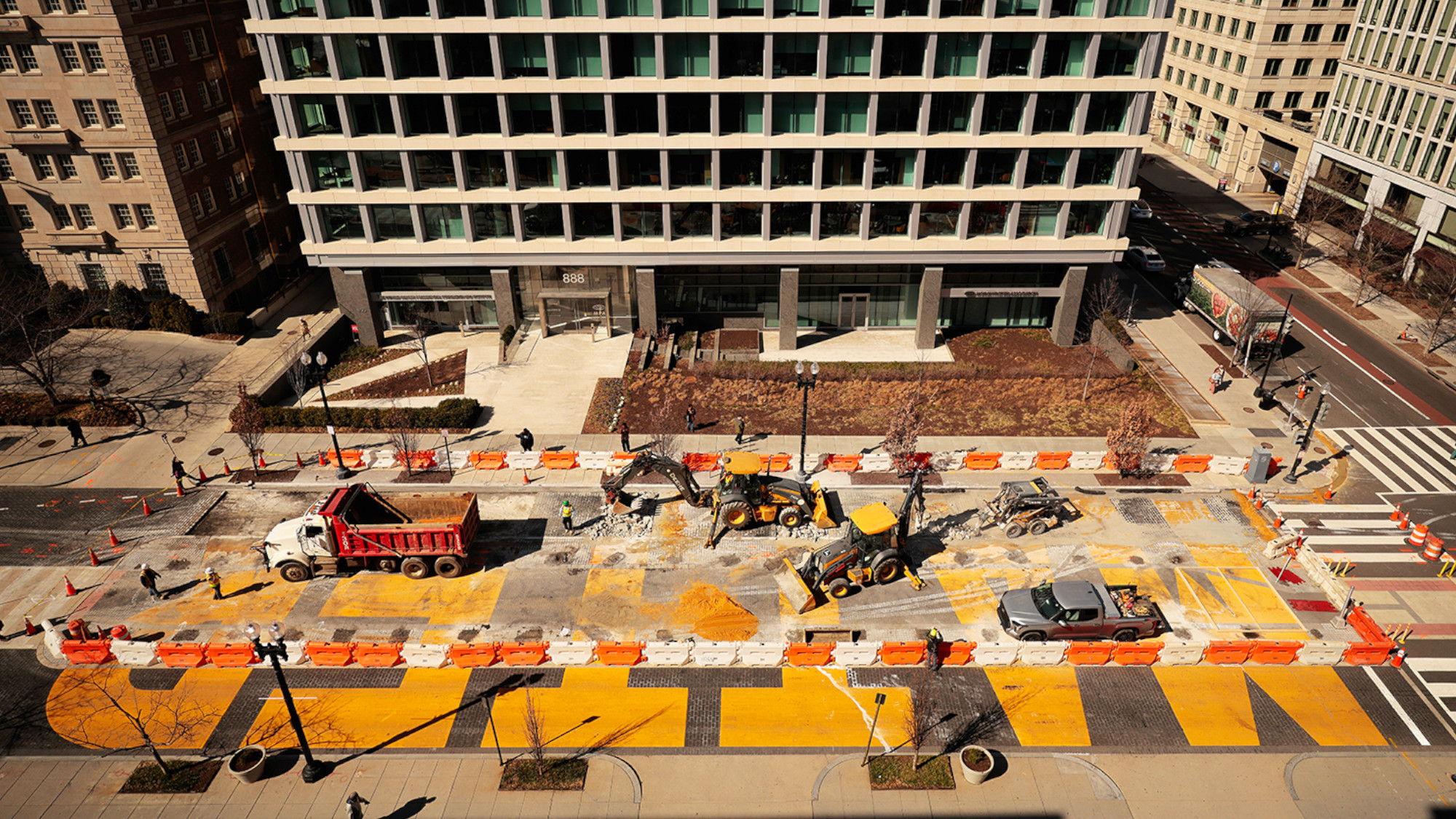Coronavirus: will protests trigger a second wave and can you march safely?
Research shows BAME demonstrators may be especially vulnerable to Covid-19

A free daily email with the biggest news stories of the day – and the best features from TheWeek.com
You are now subscribed
Your newsletter sign-up was successful
Fears are growing that the nationwide US protests over the police killing of George Floyd may trigger a second wave of coronavirus infections.
And with anger over the US authorities’ response sparking similar demonstrations in cities worldwide, including London, those concerns look set to go global.
The “specter of new coronavirus outbreaks” has prompted “political leaders, physicians and public health experts to warn that the crowds could cause a surge” in Covid-19 cases, reports The New York Times (NYT).
The Week
Escape your echo chamber. Get the facts behind the news, plus analysis from multiple perspectives.

Sign up for The Week's Free Newsletters
From our morning news briefing to a weekly Good News Newsletter, get the best of The Week delivered directly to your inbox.
From our morning news briefing to a weekly Good News Newsletter, get the best of The Week delivered directly to your inbox.
Although many public figures have “affirmed the right of protesters to express themselves”, adds the newspaper, they are urging protesters to follow measures aimed at preventing the further spread of the virus, which has disproportionately impacted BAME communities.
“What we have here is a very unfortunate experiment going on with Covid virus transmission,” Michael Osterholm, director of the University of Minnesota’s Center for Infectious Disease Research and Policy, told ABC News.
This warning was echoed by medical historian Dr Howard Markel, who likened the protests to the “bond parades” held in US cities during the 1918 Spanish flu pandemic.
Markel told the NYT that while the protests are outside, where the risk of infection is usually lower, the demonstrators “are all really close to each other”.
A free daily email with the biggest news stories of the day – and the best features from TheWeek.com
“Public gatherings are public gatherings - it doesn’t matter what you’re protesting or cheering,” he added.
So is it possible to protest safely?
Epidemiologists and doctors say taking certain measures can reduce the risk of spreading the coronavirus or being infected while demonstrating.
As Vox notes, “the risk will not be zero, but protesters can minimise harm to themselves and others”.
The New York City Department of Health and Mental Hygiene has tweeted the following guidance to protesters in the city:
Eleanor Murray, an epidemiologist at Boston University, has offered similar advice:
The NYT says that some infectious disease experts have been “reassured by the fact that the protests were held outdoors” and that “many of the demonstrators were wearing masks” and “appeared to be avoiding clustering too closely” .
“The outdoor air dilutes the virus and reduces the infectious dose that might be out there,” said Dr William Schaffner, an infectious disease expert at Vanderbilt University in Tennessee. “And if there are breezes blowing, that further dilutes the virus in the air.”
–––––––––––––––––––––––––––––––For a round-up of the most important stories from around the world - and a concise, refreshing and balanced take on the week’s news agenda - try The Week magazine. Start your trial subscription today –––––––––––––––––––––––––––––––
-
 What are the best investments for beginners?
What are the best investments for beginners?The Explainer Stocks and ETFs and bonds, oh my
-
 What to know before filing your own taxes for the first time
What to know before filing your own taxes for the first timethe explainer Tackle this financial milestone with confidence
-
 The biggest box office flops of the 21st century
The biggest box office flops of the 21st centuryin depth Unnecessary remakes and turgid, expensive CGI-fests highlight this list of these most notorious box-office losers
-
 How corrupt is the UK?
How corrupt is the UK?The Explainer Decline in standards ‘risks becoming a defining feature of our political culture’ as Britain falls to lowest ever score on global index
-
 The high street: Britain’s next political battleground?
The high street: Britain’s next political battleground?In the Spotlight Mass closure of shops and influx of organised crime are fuelling voter anger, and offer an opening for Reform UK
-
 Is a Reform-Tory pact becoming more likely?
Is a Reform-Tory pact becoming more likely?Today’s Big Question Nigel Farage’s party is ahead in the polls but still falls well short of a Commons majority, while Conservatives are still losing MPs to Reform
-
 Taking the low road: why the SNP is still standing strong
Taking the low road: why the SNP is still standing strongTalking Point Party is on track for a fifth consecutive victory in May’s Holyrood election, despite controversies and plummeting support
-
 What difference will the 'historic' UK-Germany treaty make?
What difference will the 'historic' UK-Germany treaty make?Today's Big Question Europe's two biggest economies sign first treaty since WWII, underscoring 'triangle alliance' with France amid growing Russian threat and US distance
-
 Is the G7 still relevant?
Is the G7 still relevant?Talking Point Donald Trump's early departure cast a shadow over this week's meeting of the world's major democracies
-
 George Floyd: Did Black Lives Matter fail?
George Floyd: Did Black Lives Matter fail?Feature The momentum for change fades as the Black Lives Matter Plaza is scrubbed clean
-
 Angela Rayner: Labour's next leader?
Angela Rayner: Labour's next leader?Today's Big Question A leaked memo has sparked speculation that the deputy PM is positioning herself as the left-of-centre alternative to Keir Starmer